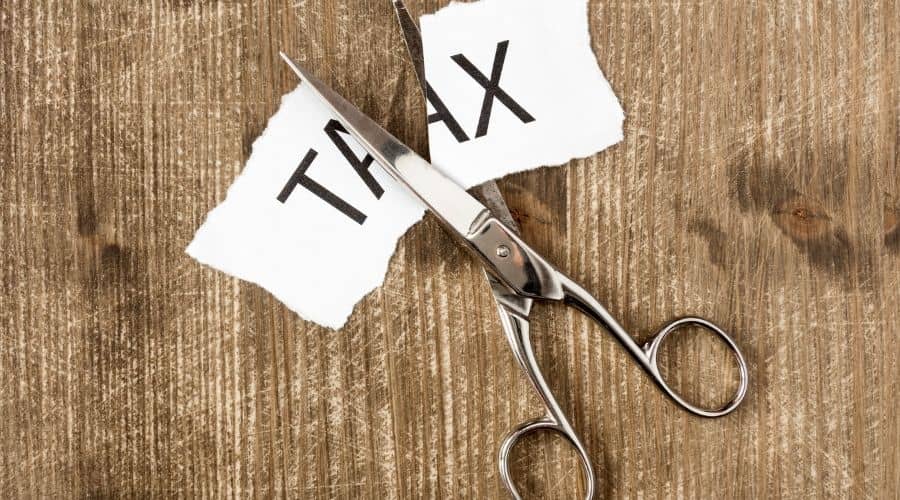Making contributions to superannuation provides tax benefits through reduced tax on investment earnings and tax deductions for certain types of contributions.
Are you ready to find out the best way to reduce your tax through super contributions?
Are Super Contributions Tax Deductible?
Yes, certain superannuation contributions are tax deductible. A tax deduction can be claimed by the contributor for certain contributions such as employer contributions, salary sacrifice contributions and personal concessional contributions.
Super contributions are broken up into two main categories: Concessional contributions and Non-Concessional contributions.
Concessional contributions are tax deductible contributions. The tax deduction is claimed by the contributor.
Non-concessional contributions cannot be claimed as a tax deduction. These types of contributions are sometimes referred to as after-tax contributions.
Related article: What is the Difference Between Concessional and Non-Concessional Contributions?
Types of Tax Deductible Super Contributions
Concessional (deductible) contributions include employer superannuation guarantee (SG) contributions, salary sacrifice contributions and personal concessional contributions.
Employer SG Contributions
Employer super contributions are classified concessional contributions because your employer claims a tax deduction for making the contribution into your super account.
Salary Sacrifice Contributions
Salary sacrifice contributions are concessional contributions because your employer claims a tax deduction for contributing the agreed amount into your super account, just like they would if the amount was, instead, paid to you as a wage. Salary sacrificing part of your wage into super reduces your assessable personal income and you effectively receive a tax deduction equal to the amount salary sacrificed.
Related article: What is Salary Sacrifice?
Personal Concessional Contributions
Personal concessional contributions are concessional contributions because you claim a personal tax deduction when completing your tax return in respect of the contribution made.
Related article: What is Contributions Tax?
How do I Claim a Tax Deduction for Personal Super Contributions?
To claim a tax deduction for personal super contributions, you need to contribute an amount from your personal bank account into super and notify your super fund of your intention to claim a tax deduction. You must receive acknowledgement from your super fund prior to completing your tax return (be mindful not to rollover your super or start a pension beforehand either), otherwise you will be unable to claim a tax deduction. On your tax return, you should declare how much you contributed to super as a deductible contribution.
How Does a Super Contribution Tax Deduction Benefit Me?
A super contribution tax deduction will provide you with a personal tax deduction, which will reduce your assessable income when calculating your personal income tax obligations. For example, if you earn, say, $80,000 in a year and made a deductible super contribution of $10,000 in the same year, then only $70,000 would be assessed for tax, because you received a $10,000 tax deduction for making the contribution.
If you were an employee earning $80,000 for the year and salary sacrificed $10,000 of your wage into super, then your personal income tax would be assessed on only $70,000.
You can see how personal concessional contributions and salary sacrifice super contributions work in the same way.
Maximum Deductible Super Contributions
The maximum amount that can be contributed into super as a deductible contribution is limited by the concessional contribution cap.
The general concessional contribution cap is $27,500 per person, per financial year. However, you may be eligible to contribute more using any carried-forward unused concessional contribution cap, provided your super balance was below $500,000 on the most recent 30 June.
Employer contributions, salary sacrifice contributions and personal concessional (deductible) contributions all count towards the same $27,500 cap. Therefore, you need to take into account all types of contributions being made into your account to determine how much more you can contribute.
Related article: Concessional contribution cap
How To Avoid Super Contributions Tax
Contributions tax is a tax that is deducted from all concessional contributions made into your super account. Contributions tax is deducted from the contribution amount and then the net amount is allocated into your superannuation member account.
The standard contributions tax rate is 15%. So, if a total of $10,000 in concessional contributions were paid into your super account during a year, only $8,500 would actually be applied to your account balance.
If you’re a bit of a big-shot and earn more than $250,000 a year, you’ll be slugged with additional 15% contributions tax on top of the standard 15%.
The only way to avoid paying super contributions tax is to make a non-concessional contribution instead of a concessional contribution. Sure, you don’t get to claim a tax deduction for non-concessional contributions, but you won’t need to pay contributions tax either.
If you are a low-income earner, earning less than $37,000 a year, then you should be entitled to the Low Income Super Tax Offset (LISTO). The LISTO basically provides you with a refund of contributions tax paid, up to a maximum of $500 per year. So, I guess being a low-income earner is another way to avoid paying contributions tax! The LISTO is automatically paid into your super account by the ATO after you have submitted your tax return, provided your super fund has your tax file number on record.
Deductible Super Contribution Strategies
Maximising deductible super contributions is a great way to build your super, especially if you are nearing retirement. If you are over age 60, you should really be considering how you can utilise your super and work-related income to reduce your tax and increase your super via a transition to retirement (TTR) strategy. A TTR strategy can often save you thousands of dollars in tax each year.
Our financial planning firm, Toro Wealth, specialises solely in helping 50 to 70 year olds optimise their financial position in the lead up to retirement. If you’re interested in learning more about our service and cost, click here.
Discover More Content on SuperGuy:

Hi, I hope you enjoyed reading this article.
If you want my team and I to help with your retirement planning, click here.
Thanks for stopping by - Chris



